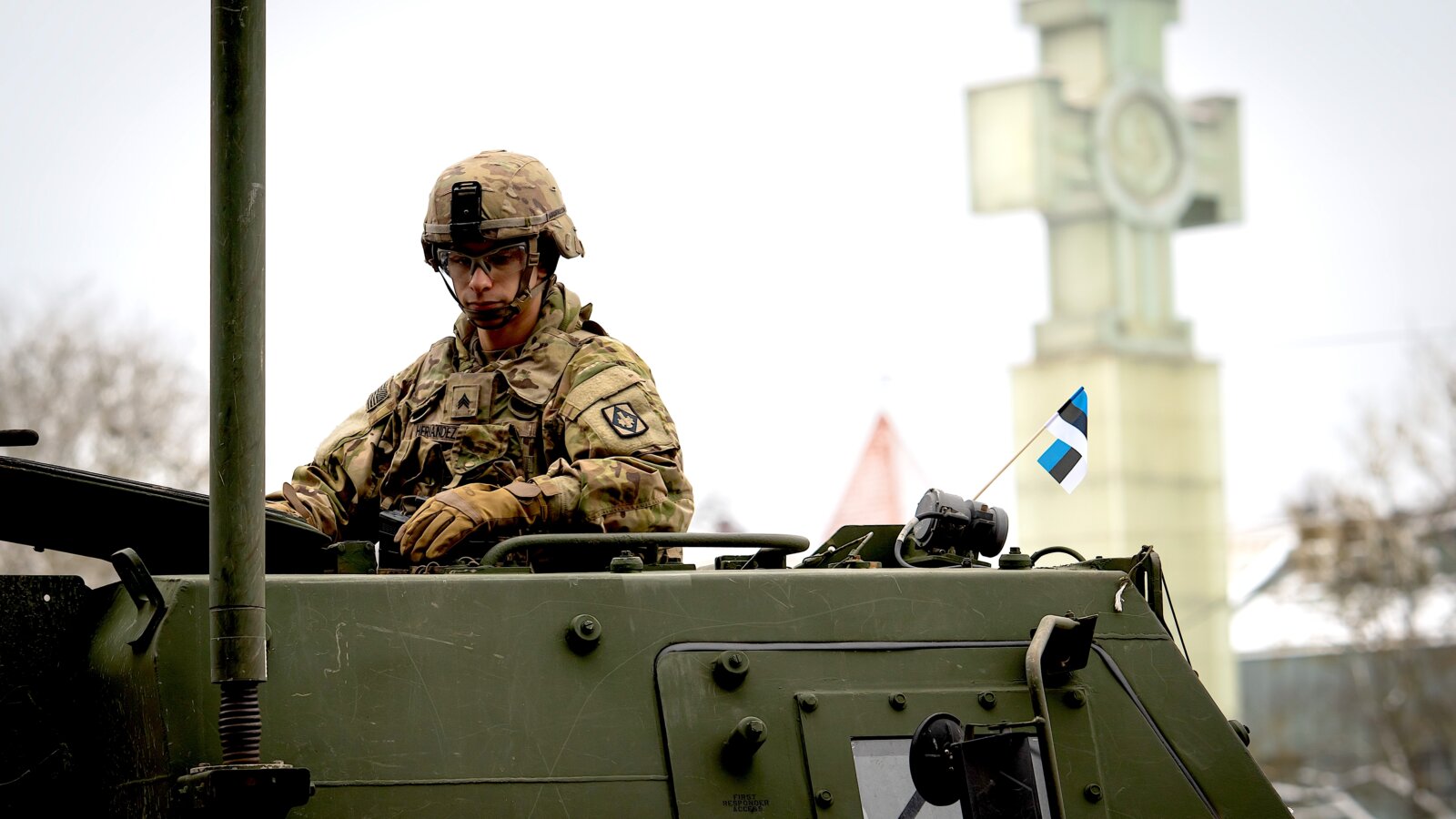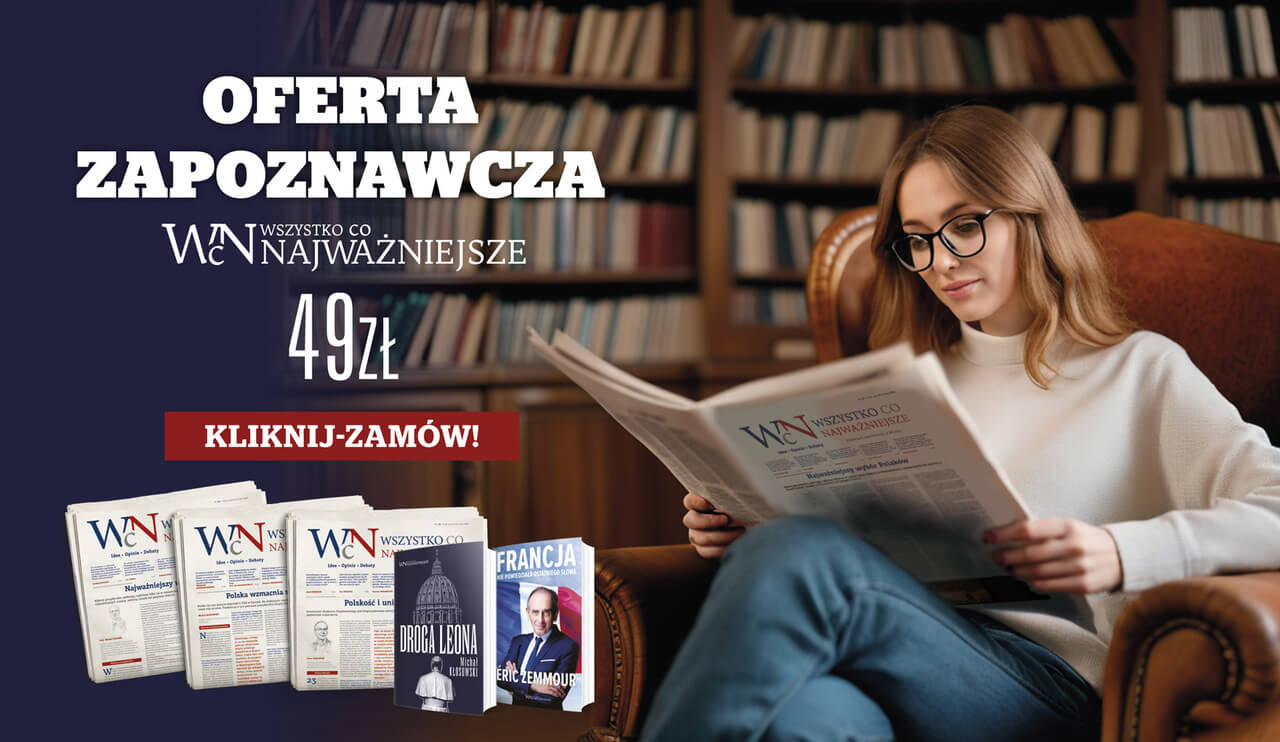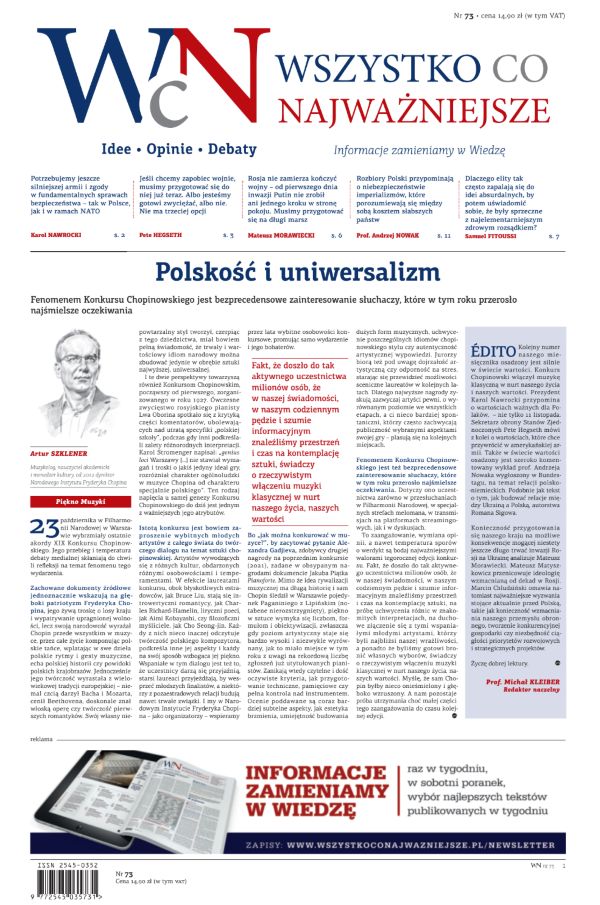
 Our Will Is Stronger Than Any Fear
Our Will Is Stronger Than Any Fear
In Estonian capital, Tallinn, Lauri HUSSAR, the Speaker of the Estonian Parliament, seat with Michał KŁOSOWSKI and talked about the deepening bond between Estonia and Poland, the lessons of history, and the meaning of strength in a time when freedom must once again be defended. From the shadow of Russia’s war to the promise of European unity, Hussar’s reflections reveal the quiet determination shaping today’s Eastern Europe.
Michał KŁOSOWSKI: First question will be personal: this year you received the Polish Grand Cross of the Order of Merit. How do you see the current relationship between Poland and Estonia?
Lauri HUSSAR: I would say that our relations have never been closer than they are today. Of course, part of this closeness comes from the security situation in our region and in the wider world. But it also has deeper roots: something our former President Lennart Meri once expressed beautifully. He said that Poland is the closest large democratic country to Estonia. That statement still holds true. Poland is not only geographically close, it is a nation that shares our values, our democratic instincts, and our understanding of freedom.
Russia’s full-scale war against Ukraine in February 2022 has forced all of us to rethink how we cooperate, how we see our future, and what we can do together with our allies to build a strong defense on our borders. It has also shown us the importance of deepening our regional partnerships. I believe that today, our cooperation with Poland has reached an entirely new level. I am genuinely grateful for this opportunity to witness and contribute to that next chapter in our relations. Earlier today, I spoke with President Karol Nawrocki about our bilateral connections, particularly regarding infrastructure and transport corridors. I assured him that Estonia is on track to fulfill our commitments. For instance, we expect the Rail Baltica project to be completed by the end of 2030. Our dream is simple: to board a train in Tallinn and arrive in Warsaw in six or seven hours. If we achieve that, rail will become a true competitor to air travel and a powerful symbol of how closely connected our nations have become.
– You’ve mention President Lennart Meri. I’d like to go back to 1994, when he gave his famous speech, which we published on Wszystko co Najważniejsze in which he predicted that within 20 years, Russia could again be capable of launching a full-scale invasion. For years, Estonia, Latvia, Lithuania, and Poland tried to convince Western partners to take that warning seriously. How do you feel now, seeing those concerns vindicated?
– I remember being at the GLOBSEC conference in Prague about a year ago, where European Commission President Ursula von der Leyen opened her speech by saying: “Central and Eastern Europe — you were always right about Russia.” That moment was powerful. She acknowledged that our warnings had been accurate and timely. We were not simply the canary in the coal mine — we had a deep historical understanding of what Russia is, of what imperialism means, and of the enduring drive to restore the Soviet sphere of influence.
We worked hard to communicate this truth even when some of our Western partners did not fully believe us. Today, however, there is no longer any illusion: we all understand who Vladimir Putin is, what the Russian Federation stands for under his rule, and what its imperial ambitions entail. That is why our task now is to continue supporting Ukraine as much as we possibly can: to raise the cost of aggression for Russia to the point where it can no longer sustain the war and must agree to peace, based on Ukraine’s own peace formula.
Let me bring an example from history. Estonia is one of the very few countries that once signed a peace treaty with Russia on its own terms. That was in 1920, the Treaty of Tartu. We succeeded because we had military strength, because sanctions and blockades weakened Soviet Russia, and because our allies, including the British fleet, supported us. It was a combination of determination and solidarity that forced Russia to accept peace under Estonian conditions. Of course, we did it because we wanted peace — but it was peace on our terms.
– In Poland, that story of 1920 is also well known, especially because of our own victory that year, Battle of Warsaw. So how do you respond to the statement made by Angela Merkel, suggesting that the actions of Poland and the Baltic states somehow provoked Putin to attack Ukraine?
– Of course, if one reads her remarks carefully, it’s clear that she intended to be analytical. Yet coming from a former German Chancellor, such words carry great weight. We must remember that for years, our Western partners sought ways to „manage” their relationship with Russia to find a pragmatic solution. But from our perspective, there are moments in history when negotiation is not possible. There is no room for dialogue with an aggressor that continues to violate the sovereignty of its neighbors.
This aggression did not begin in 2022 or even in 2014. We could already see its signs in 2008, when Russia invaded Georgia and occupied parts of its territory. The warnings have always been there. By now, everyone should know that Russia will not change on its own. As President Wolodymir Zelensky once said about Russia, when he was visiting Tallin: „This nation never changes.” Its imperial idea remains deeply rooted. The only language the Kremlin truly understands is the language of strength. The good news is that Europe’s capacity to produce military equipment and technology now exceeds Russia’s. When procurement is properly organized, our defense industries can outproduce Russia in every category.
– Beyond security and defense, what other areas of cooperation do you see developing between Estonia and countries like Poland?
– Cooperation today is extensive, though naturally every country also thinks about its own economic interests. Still, there are promising examples of how we can work together more effectively. For instance, Estonia and Latvia have carried out a joint procurement of a mid-range air defense system — the IRIS-T from Bavaria. This kind of joint acquisition is unusual but very meaningful. It shows how smaller countries can cooperate to obtain the best technology at the best price.
There are also new possibilities in digital innovation and artificial intelligence. Estonia has been at the forefront of digital governance for years, and AI is increasingly part of our national development strategy, including in defense applications. European military industries are beginning to integrate these technologies, and we see opportunities for cross-border collaboration between our research institutions and companies. Of course, there will always be competition: between nations, between companies, even between continents. But cooperation is possible and essential. Airbus, for example, is a model of European partnership: engineers from multiple countries building together some of the most reliable aircraft in the world. That’s the kind of spirit we need more of.
– You mentioned regional cooperation. There’s also a new format initiated by the Speaker of the Polish Sejm, Szymon Hołownia, bringing together the Baltic states, Poland, and Ukraine. What do you think about that?
– Yes — and I truly value this initiative. We have now met twice: first in Poland, and then this year in Tartu. I also invited the Speaker of the Finnish Parliament to join the format, since all our countries share borders with Russia and face similar challenges. We discussed a wide range of topics, including security, border control, and defense, but also cooperation between municipalities and regional institutions. It’s a very practical and constructive platform, and it shows how much closer our countries have grown over the past three or four years. And we must continue building on this progress. Regional cooperation is crucial, but we must also remember our broader alliances, the European Union and NATO. These frameworks make our countries safer, stronger, and more prosperous.
– This year, Tallinn is hosting the meeting of the Arraiolos Group, a gathering of several heads of state from the European Union. What did hosting this summit mean for you personally, and for Estonia as a whole?
– It is an honor to welcome so many of Europe’s heads of state to Tallinn. I am deeply grateful for this opportunity, not only personally, but as a moment of recognition for Estonia’s foreign policy globally. It shows that our country is seen as a trusted and important partner within the European Union, one whose voice matters in the discussions about Europe’s future. For Estonia, hosting the Arraiolos Group meeting confirmed that even a small nation, when principled and consistent, can help shape the European agenda. It was also a reminder that leadership in Europe is not measured by size, but by the clarity of vision, leadership, desire for development and grow and the courage to defend our common, European values.
– Estonia is developing rapidly, even if now under the shadow of potential Russian aggression. Are you afraid of a possible invasion?
– No, we are not afraid. We are prepared. Like Poland, Estonia invests heavily in defense, more than five percent of our GDP. Yet our strength is not derived solely from our defense spending; it also stems from close cooperation with our allies, as recent events have clearly shown. Also, we have many allied troops stationed here in Estonia, and together thanks to European Defense Initiative we are building deterrence so strong that Russia would never dare to attack us, or any NATO country. We are determined to end this imperial illusion: this aggressive dream of restoring empire. They cannot rebuild what no longer exists, because we will not allow it. Our will is stronger
Interview conducted in Tallinn by Michał Kłosowski




